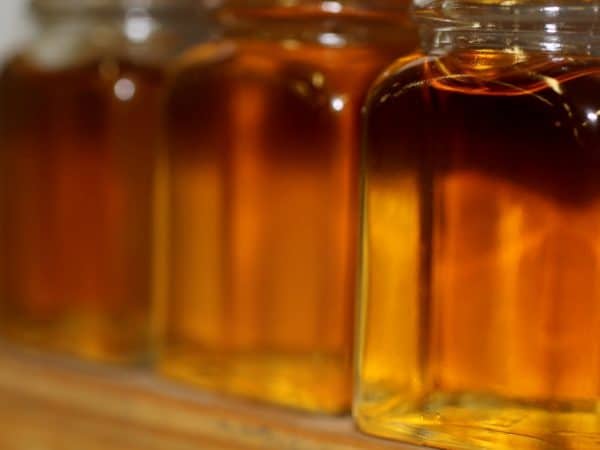Maple syrup can increase the power of antibiotics, study finds

 Maple syrup. Antibiotic? Well, not exactly, but a connection is there.
Maple syrup. Antibiotic? Well, not exactly, but a connection is there.
A new study from McGill University finds that a maple syrup extract has the power to increase the potency of antibiotics, a result which could lead to a drastic reduction in the amount of antibiotics used to fight disease.
Researchers from the Centre for Host-Parasite Interactions at McGill University investigated the potential antimicrobial characteristics of maple syrup by isolating the syrup’s phenolic compounds, responsible for maple syrup’s golden colour. Phenols are a class of compounds found naturally in foods like berries, grapes and citrus fruits and known for their anti-inflammatory, anti-oxidative and cancer-fighting properties.
The research team first exposed disease-causing bacterial strains to the maple syrup extract to see if it had any propensity to fight infection on its own. The extract showed little effect, however, which pushed the researchers to check out whether the extract might work as a supportive agent alongside other antibiotics. Surprisingly, when mixed with ciprofloxacin and carbenicillin, the syrup extract boosted the effectiveness of the antibiotics, such that the researchers could use 90 per cent less antibiotic to have the same bacteria-killing effect.
“Native populations in Canada have long used maple syrup to fight infections,” says Nathalie Tufenkji of the Department of Chemical Engineering at McGill University in Montreal, in a press release. “I’ve always been interested in the science behind these folk medicines.”
The team then tested the extract on fruit flies and moth larvae who were exposed to pathogenic bacteria. Some of the flies and larvae were doused with an antibiotic as well as the maple syrup extract while others just received the antibiotic, with the flies and larvae getting the extract living for days longer than those given just the antibiotic.
Maple syrup antibiotics: the combination is promising…
“The results of our research are potentially significant because they might help reduce the usage of antibiotics,” says Tufenkji, to CTV News. “We know that in our day and age, there’s a global crisis of overuse of antibiotics which has led to the development of antibiotic resistance.”
The researchers identified a few features of the maple syrup extract that likely contribute to its antibiotic-supporting abilities. On the one hand, they found that the syrup phenols are able to alter the permeability of the bacterial cell, allowing antibiotics to more easily penetrate the cell walls and do their destructive work. On the other hand, the extract appears to disrupt the cellular pumps which help the bacteria to remove unwanted agents such as antibiotics. As well, the new research also notes that the maple syrup extract appears to affect bacteria at a genetic level, limiting the gene expression of the bacteria’s virulence genes and effectively making the bacteria less potent.
Currently, the researchers are continuing their investigation by testing the maple syrup extract on mice. ”We’re excited we have a made-in-Canada solution to the overuse of antibiotics,” says Tufenkji.
Antimicrobial resistance has been described by the World Health Organization as “one of the most complex global health challenges today,” where antibiotic as well as antiviral and antiparasitic agents are all becoming increasingly ineffective due to overuse. The result has been the emergence of so-called superbugs, those agents that have developed drug resistance and are causing more deaths every year from common infections.

